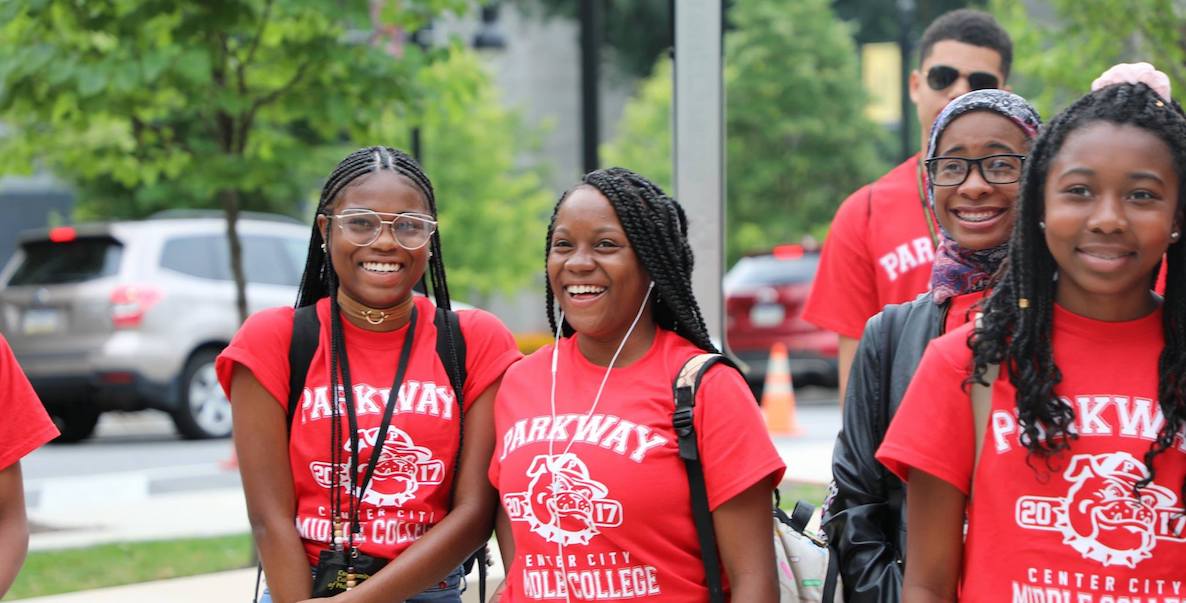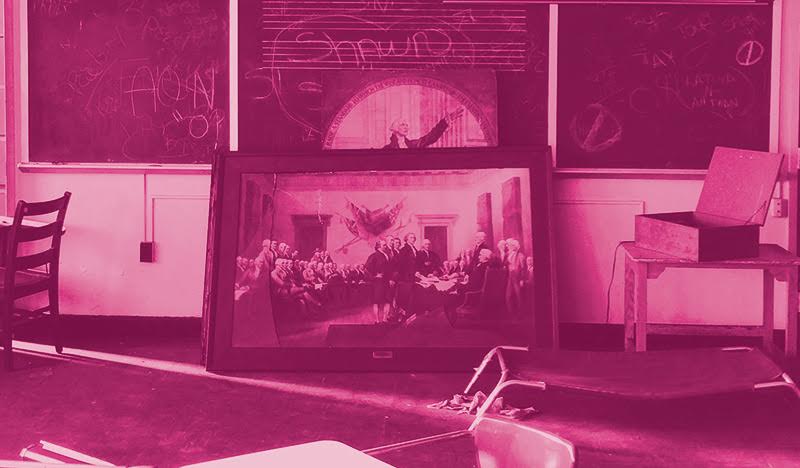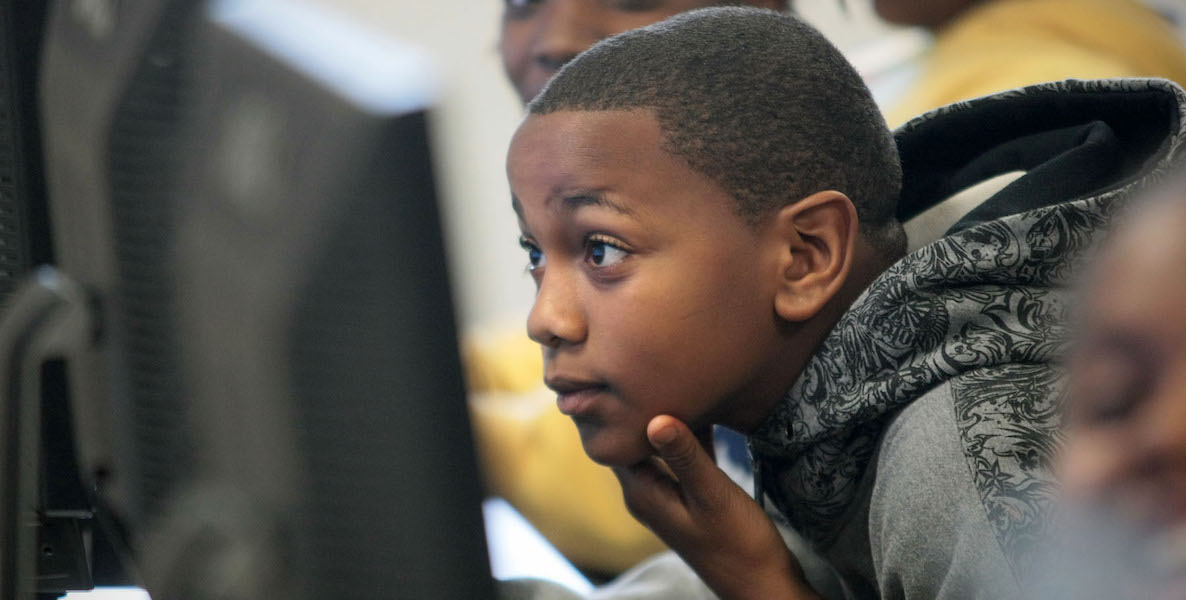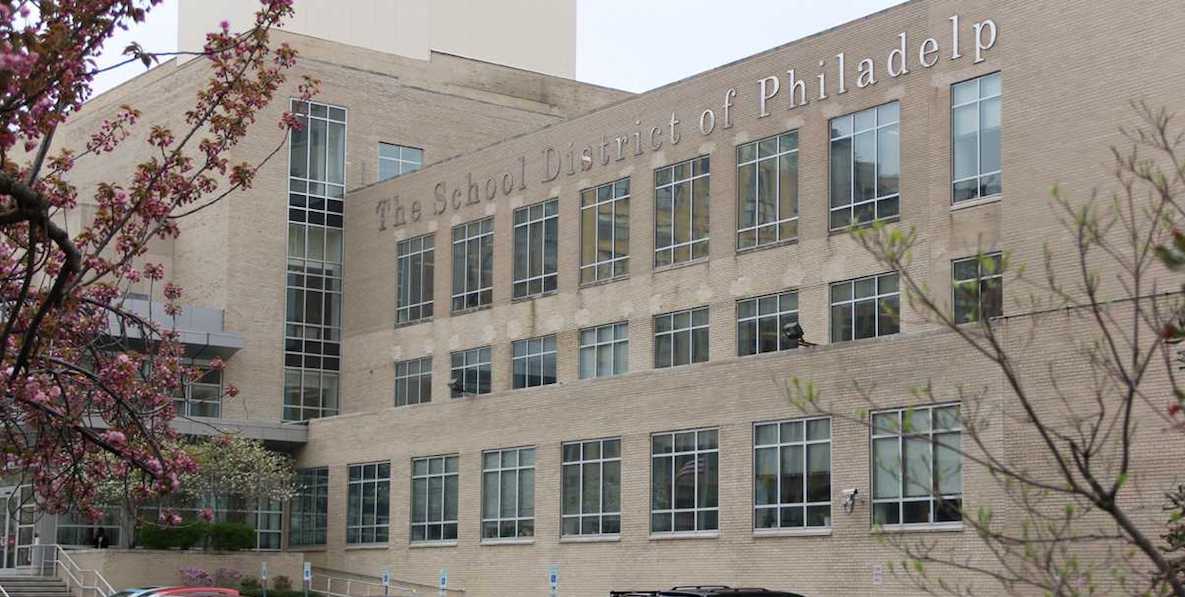In September, when Amazon announced its plan to build a second North American headquarters, the media went predictably crazy, and municipal leaders from cities big and small fell all over themselves trying to entice the online behemoth’s “HQ2”, with its promise of a $5 billion campus and 50,000 high paying jobs. The ensuing spectacle of mayors from across this great land prostrating themselves and their tax regimes before the online colossus was a tragicomic posing of the question: What do you give to the company that has (and sells) literally everything?
Be Part of the Solution
Become a Citizen member.To its credit, Philadelphia produced one of the more dignified and dynamic proposals, replete with impassioned letters of support from across the civic, corporate and governmental spectrum, and an energetic, vivid promotional video touting our town’s diversity, physical beauty (through some virtuoso location scouting), a Joel Embiid cameo, and not one, but two bleeped f-bombs from La Colombe founder Todd Carmichael. Throughout the three-minute spot, choice luminaries uttered caffeinated phrases like “momentum,” “explosion,” “tipping point,” and “x-factor” over frenetic shots of kick-flipping skateboarders, sizzling skillets of cacio e pepe and endless unsubtle references to Philadelphia’s burgeoning tech prowess. Hell, the promo made me want to move to Philly, and I already live here.
The city depicted in Philadelphia’s pitch was a place full of renegade entrepreneurs, free-thinking futurists, and punk-rock nerds, all eschewing convention in the name of unfettered innovation—precisely the kind of population that would appeal to, say, Jeff Bezos. But it bears asking, is that really who we are? And, if not, in a world where technology advances at a rate that seems to render everything obsolete every five minutes, how can we become that?
The answer has to be in changing the way we approach education. In light of Mayor Jim Kenney’s recent announcement that the School Reform Commission will soon dissolve itself, we find ourselves faced with just such an opportunity. Our city’s public education system has been in a state of crisis for what seems like an eternity, with vast and interminable budget shortfalls, a controversial governance system and a paucity of key resources that have kept Philly students from getting the edge they need to compete.
Kenney’s bold call to move on from the SRC means we can look forward to the end of a failed 15-year experiment in unaccountable authoritarian control. But in order to equip our next generation to compete and thrive in a radically changing corporate landscape, we need to go beyond changes in governance and radically subvert an outdated paradigm of schooling: The corporate model.
Any consideration of a revolutionary new approach to education needs to first answer a basic question: How did we get here? For that, we look to the turn of the 20th Century, when the concept of “scientific management” unleashed legions of “efficiency engineers” and “efficiency experts”—precursors to today’s management consultants—throughout industry, guiding companies on their factory floors.
The city depicted in Philadelphia’s Amazon pitch was a place full of renegade entrepreneurs, free-thinking futurists, and punk-rock nerds, all eschewing convention in the name of unfettered innovation. But is that really who we are? And, if not, how can we become that?
Inevitably, the phenomenon of scientific management soon made its way into American schools, those training grounds for the next waves of industrial labor power. In a 1911 speech to the High School Teachers Association of New York City, efficiency expert Harrington Emerson expounded on “Scientific Management and High School Efficiency,” citing among other principles essential to the delivery of an education equal to the era’s corporate demands: planning, standard records, standardized operations, standard instructions, standard schedules, and rewards for efficiency.
During the industrial boom times of the war years, scientifically managed schools functioned well as conduits to the plants, hangars and warehouses where working class students would eventually find their employment. With the advent of the corporate model, teachers began to unionize and progressive interests attempted to push back in various ways against an education model which they argued seemed to serve only the present and future prerogatives of big business.
Throughout the 20th Century, the American education system developed in tandem with and under the influence of the American industrial system. Naturally, this tethering also meant that the fates of schools were bound up with the fortunes of the industrial economy. But then came the deindustrialization of the early 1970s. From its height of 4.1 percent of GDP in 1975, total government spending on K-12 education plummeted to 3.6 percent by 1985, aided by local property tax revolts that helped eviscerate the primary source of public school funding. In once prosperous manufacturing centers like Detroit, Youngstown and Gary, Indiana, the void left by the departure of key industries was filled by rampant unemployment, poverty, infrastructural decrepitude and schools on the verge of collapse.
The dire straits of American public schools since the late 1900s gave rise to a chorus of voices, comprising earnest ideologues and cynical opportunists alike, directing blame at the concept of “state-run” education itself. It was under these circumstances that the politics of vouchers and charter schools came to the fore, and teachers unions, and teachers themselves, were cast as the villains in the interminable tragedy of the nation’s schools.
By the turn of the 21st Century, the industrial tycoons of yesteryear had been supplanted by a new breed of plutocrats, a cadre of men who had made their billions in finance, real estate speculation, discount retail, and information technology. To these new corporate titans, the wasteland of American schools offered an entrepreneurial opportunity to rebuild education from the rubble, and to do so in fealty to the vision and strategies that had proven so wildly successful in their business endeavors. The Gates Foundation, the Walton Foundation, the Dell Foundation and others began pouring tens of millions of dollars into educational reform under the rubric of “philanthrocapitalism,” an approach to philanthropy characterized by an aggressive, venture capital-based insistence upon brutal efficiency and short-term quantitative gains, measured in this context by improvement in test scores.
The educational philanthrocapitalists of the information age brought to bear upon public schools their industrial predecessors’ theory of scientific management, now hopped up on algorithmic steroids and connected to the Internet. Not content to go it alone, these powerful players turned their influence toward local, state and federal governments, ushering in the era of No Child Left Behind and Race to the Top. These mandates imposed dramatic and severe conditions on public schools’ access to federal and state funding, demanding measurable annual improvements in standardized tests, exerting more pressure on already beleaguered teacher ranks, and railroading schools that failed to achieve “Adequate Yearly Progress” toward restructuring, privatized management, charterization or closure.
With these policies in place for nearly two decades now, one conclusion is clear: They don’t work. Insofar as their obsession with “closing the achievement gap” is concerned, NCLB, Race to the Top, and their accomplice programs flowing directly from philanthropic foundations have failed to overcome the entrenched and crushing effect that poverty, especially childhood poverty, has on educational attainment. Teacher “accountability” schemes, administrative restructuring, and conversion of publicly run schools to charters have not surmounted the impact of hunger, homelessness, and familial upheaval on kids’ ability to learn.
![]() The problem with the venture philanthropy approach isn’t just that it is failing to achieve the intended quantitative outcomes, but that it is reinforcing, and, indeed, mandating an obsolete pedagogy. 21st Century scientific management of schools has only intensified and technologized a factory-style educational scheme designed to create interchangeable, docile, silent workers who would in turn unthinkingly mass-produce interchangeable products according to rigid standards.
The problem with the venture philanthropy approach isn’t just that it is failing to achieve the intended quantitative outcomes, but that it is reinforcing, and, indeed, mandating an obsolete pedagogy. 21st Century scientific management of schools has only intensified and technologized a factory-style educational scheme designed to create interchangeable, docile, silent workers who would in turn unthinkingly mass-produce interchangeable products according to rigid standards.
Never mind the moral issues with this commodified conception of education; we know now that any kind of one-size-fits-all pedagogy fails to serve students. A given group of kids at the same age and grade level will necessarily learn at different paces and will respond differently to different kinds of intellectual stimulation. Even a dedicated, passionate teacher forced to deliver a single lecture to a class of 25 kids is tantamount to a karate instructor demanding that a single dojo of white belts, blue belts and black belts all be able to break a two-by-four with their foreheads.
Making these kinds of misguided assumptions about uniformity of ability and learning style not only leads to a lot of headaches in the here and now, but propagates the teaching of irrelevant “skills” that students will never need, poisoning them against a lifelong love of learning. This is to say nothing of the demoralized, circumscribed, and (still) underpaid teachers who are leaving the profession in droves, disgusted and discouraged.
The knee jerk response to this argument is invariably some formulation of, “What are we supposed to do, give every student in America a private tutor?” Not long ago, that would have been a completely fair criticism, but it is now the case that the very technology that is reshaping the labor market has the capacity to reshape the educational sector. Customization is the throughline of nearly every blockbuster tech innovation of this century. Just as new targeted cancer treatments are sparing patients the misery of full-body chemo blasts, new mobile apps allow us to personalize everything from our car rides to our take-out orders to meet our own priorities and preferences. There’s no reason to think education can’t be viewed through this lens either.
![]() The troublesome paradox at work here is the fact that the corporate giants wielding such outsized power and influence of education in America today are not doing so in a way that will produce the kind of workforce that they will require in the years ahead. In a world where everyone is expected to be an entrepreneur, to invent the next Facebook, the next iPhone, the next Uber-but-for-fill-in-the-blank, the education that most American kids are receiving is woefully inadequate.
The troublesome paradox at work here is the fact that the corporate giants wielding such outsized power and influence of education in America today are not doing so in a way that will produce the kind of workforce that they will require in the years ahead. In a world where everyone is expected to be an entrepreneur, to invent the next Facebook, the next iPhone, the next Uber-but-for-fill-in-the-blank, the education that most American kids are receiving is woefully inadequate.
It comes as no surprise that some of the first folks to figure this out have been parents employed in tech fields. Homeschooling is no longer the sole stereotypical province of the religious and the rural, but the domain of Silicon Valley programmers and executives who recognize that transferring their own skills and experiences will put their children in a uniquely advantaged position over peers relegated to standardized education. Of course, this cohort of homeschooled students (and those at like-minded progressive boutique academies) tends already to be uniquely advantaged thanks to the enviable socioeconomic position of their parents.
As a country, we should be following the lead of these Silicon Valley parents to catalyze a wholesale overhaul of the way we develop, deliver, evaluate and fund education for kids across class strata. To be clear, we wouldn’t be starting from zero; education innovators like the free, online Khan Academy provide rigorous, interactive courses of study to anyone who can get online. It’s easy to imagine the benefits of a scenario promoted by Khan Academy and others, including Philly’s own String Theory Charter. It’s called the “Flipped Classroom.” Picture a class of 8th graders taking in a lecture on linear equations at home after dinner, rewinding and reviewing the material as needed, then regrouping at school the next day for collaborative application and debate of the lesson, during which the subject matter’s “black belts” can guide and help their “white belt” peers.
Technology has changed, the global economy has changed, and the world itself has changed, all never to return to the ways of old. If we do not meet these revolutions with a revolution of our own in the way we educate those who will be living in that changed world, we will have failed the future.
It bears further noting that this concept didn’t begin with the advent of the Internet; for decades, education researchers like the late Harold Stevenson have observed strong correlations between scholastic achievement and educational environments that emphasize collaboration, experiential learning and a high tolerance for mistake-making. Kids learn best, contend Stevenson and his ilk, when they’re encouraged to find different ways to break the proverbial two-by-four.
Such an approach not only promotes both personalized learning and deeper collaboration, but helps prepare students for a future that will reside in cyberspace as much as in the “real world.” Of course, integrating online and interactive curricula into an academic program will require a fairly drastic recalibration of the way teachers teach. This need should be the impetus for a revolutionized philosophy on the educational profession itself.
To start, we should throw lots of money at teachers, or, at least, at the most talented teachers. It’s naïve to assert that such a critically important vocation should be pursued as a mere labor of love; there is far too much at stake. The public and private sectors alike should be committing major resources toward diverting our best and brightest college graduates and young professionals away from the gilded prisons of Wall Street and into our nation’s far-flung classrooms.
And those classrooms should be far-flung; our national interest is not served when we depend on a few coastal oases of educational excellence while inner-city schools fall further and further behind. The federal government’s educational policies (and the corporate power players who shape them) should be refocused on funding, supporting and promoting schools’ efforts to personalize students’ education in a way that helps them to feel competent, spark passion, and engender an authentic love of learning. A constant metric of that effort should be its success in reaching all American kids, irrespective of race or socioeconomic class.
Which bring us back to Philadelphia. Philadelphia’s Amazon bid is no sure thing, splashy promo videos notwithstanding. But the long odds are no reason to treat the chance as a pipe dream or a cruel tease. Whether or not we end up as the home to HQ2, we are compelled to view the opportunity as a wake-up call and a challenge. Technology has changed, the global economy has changed, and the world itself has changed, all never to return to the ways of old. If we spend even half the time and energy working to reimagine education as we do worrying about Joel Embiid’s knees, there’s no limit to what we might achieve.
But if we do not meet these revolutions with a revolution of our own in the way we educate those who will be living in that changed world, we will have failed the future. There will be other Amazons on the horizon, and we would be well served to prepare our kids to welcome them.
Ajay Raju, an attorney and philanthropist, is chairman of DilworthPaxson and a founder/board member of The Citizen.








